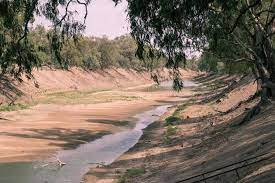“More frequent natural disasters”: impact of hotter temperatures on rural Australians revealed
Luke Williams
12 November 2023, 6:40 AM
 Aftermath of the 2013 Coonabarabran fire. Image: Australian Government
Aftermath of the 2013 Coonabarabran fire. Image: Australian Government The Rural Health Alliance has told the Western Plains App that there is likely to be an increase in emotional distress and acute mental disorders because there are going to be more frequent natural disasters as the climate heats up.
National Rural Health Alliance CEO Dr Susi Tegen said that the “intensity and frequency of climate change” will impact rural Australians disproportionately.
“We have to put up with much more frequent natural disasters,” Dr. Tegen said.
She cited examples of the numerous bushfires ravaging the nation in recent weeks.
“The problem from a health perspective is often about the impact on mental health. There will be more emotional distress and higher rates of acute mental illness”.
Dr Tegen was recently in Adelaide where she met with stakeholders involved in the National Climate Risk Assessment (NCRA) and the National Climate Adaptation Plan.
She told them rural Australians need not only better mental health resources to deal with the increase in severe weather events but also more resources given to fire-fighters and paramedics.

Dr Suzi Tegan. Image: Supplied.
Dr. Tegen’s comments come as organisations representing three million healthcare professionals worldwide have made a united call for the health risks of climate change to be addressed.
They voiced their support of an open letter with 40 signatories, including the Royal Australian College of General Practitioners, asking politicians to do more to protect their citizens from the health impacts of the crisis.
Speaking in front of a large international group of doctors who had donned green clothing to support the message at a conference in Melbourne, RACGP Specific Interests Climate and Environmental Medicine Chair Dr Catherine Pendrey said that many attendees have directly treated patients impacted by climate change.
‘From the Black Summer bushfires to the Lismore floods, general practitioners and family doctors are on the front line of supporting their communities from climate change and its health impacts,’ she told reporters.
This is the reason health organisations representing three million health professionals have raised their concerns, according to Dr Pendrey.
The letter comes in the wake of new reports suggesting the Earth has seen the highest temperatures recorded for 100,000 years.
There has also a 19% drop in average yearly rainfall in Australia compared with 1970 levels.

Image: ABC.
Dr Maria Neira, World Health Organization Director for the Department of Environmental, Climate Change and Health, called climate change ‘potentially the greatest health challenge of the 21st century’.
Dr Neira presented a keynote address on the issue, saying that approximately seven million people around the world die prematurely each year due to air pollution – a situation she says overlaps significantly with climate change.
Dr Tegen told the Western Plains App there was no denying the socio-economic impacts of a drier, warmer and more disaster prone climate.
“90% of our food comes from rural and regional Australia…and 50% of our tourism economy comes from the same place.”
She said climate issues had the potential to devastate industry and, in turn, the food source for so much of Australia.
“Rural areas will have to come together to solve these problems when they arise”.



